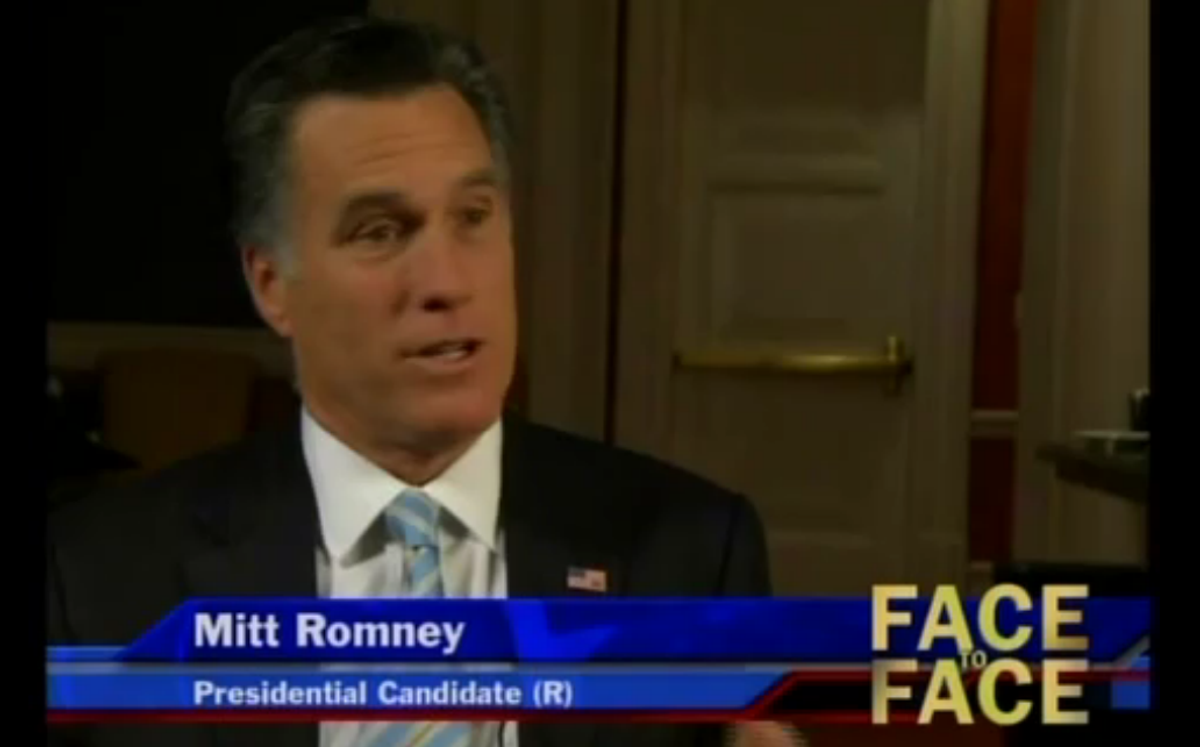When on Wednesday morning he first asserted, in a clumsy effort to inoculate himself against Democratic efforts to cast him as the embodiment of the top 1 percent and its agenda, that "I'm not concerned about the very poor," Mitt Romney was told by CNN's Soledad O'Brien that his remark might sound "odd" to people and offered a chance to retract or clarify it.
He insisted he'd been quite clear, arguing that "the very poor have a safety net" and stating: "You can focus on the rich. That's not my focus. You can focus on the very poor. That's not my focus. My focus is on middle-income Americans -- retirees living on Social Security, people who can't find work, folks that have kids that are getting ready to go to college. These are the people who've been most badly hurt during the Obama years."
Not surprisingly, his comments became an instant viral sensation. When a reporter asked him later in the day, “What did you mean when you said you were not very concerned about poor people?" Romney again stood his ground: "No no no no. I -- no, no. You’ve got to take the whole sentence, all right, as opposed to saying, and then change it just a little bit, because then it sounds very different."
But by last night, after absorbing 36 hours of taunts from Democrats, uncomfortable scrutiny from the press and surprising hostility from his fellow Republicans, Romney switched gears and issued a mea culpa.
"It was a misstatement," he told the Las Vegas Sun's Jon Ralston in an interview that aired on a Nevada station. "I misspoke. I’ve said something that was similar to that but quite acceptable for a long time. And, you know, when you do I don’t know how many thousands of interviews, now and again you may get it wrong. And I misspoke -- plain and simple.”
He went on to stress that he wants to maintain a "strong and able " safety net for the poor, but that "my primary focus is on helping people get in the middle class and help grow the middle class."
"People are going to go after me when I make a mistake -- when I slip up in a word I say, even though I say, ‘I got it wrong. Sorry, that’s not what I meant,'" Romney said. "Well, that’s going to be part of the political process. I understand it, and I accept that."
While it will probably cause a brief spike in coverage, this morning Romney's change in tone figures to mark the end of this particular episode. But we'll surely be reminded of it many times between now and November -- "I'm not concerned about the very poor" is destined to play a role in Democratic ads and talking points -- and the episode itself has been instructive from several standpoints:
- It confirmed how mindful Romney is of the importance of blue collar swing voters to any GOP November victory formula and of the unique challenges he faces in appealing to them because of his top one percent-ness. As he noted in his Ralston interview, Romney has been making the same basic argument he was trying to make on CNN this week for months now, only in "an acceptable way" -- meaning that he usually only says that he doesn't care about rich people, and leaves out the part about poor people. More than any of his GOP rivals, Romney often goes out of his way to mention the middle class and (within the strict limits of Tea Party-era Republicanism) has constructed an economic platform that is slightly less friendly to the rich than his foes. But just because he's conditioned to pitch his message to the middle class doesn't mean that Romney is good at doing it.
- It revealed how uneasy many Republicans are with the idea of Romney serving as their standard-bearer. "What is wrong with this guy?" was the headline of a Jonah Goldberg column at National Review Online. "As a bunch of us have been writing around here for a while, the under-emphasized dynamic in this race isn’t that Romney isn’t conservative enough (though that’s obviously a real concern out there) it’s that he’s simply not a good enough politician," Goldberg wrote. He wasn't alone in expressing this sentiment. This doesn't mean that key Republicans will suddenly embrace Newt Gingrich or that Romney isn't still the most electable available option for the party; but it does show that they have real doubts about whether he'll be able to capitalize on what could be a favorable general election climate for the GOP.
- It gave Romney a taste of his own medicine. The point has been made that Romney's CNN words didn't sounds as harsh in context, and there's something to this; if you want to give him the full benefit of the doubt, he was arguing that the same effort that's gone into creating a safety net for the poor should also be made to protect the middle class. But as Greg Sargent pointed out, the irony of Rommey pleading for people to consider the context is rich, given that his campaign created this ad -- and Romney defended it.

Shares